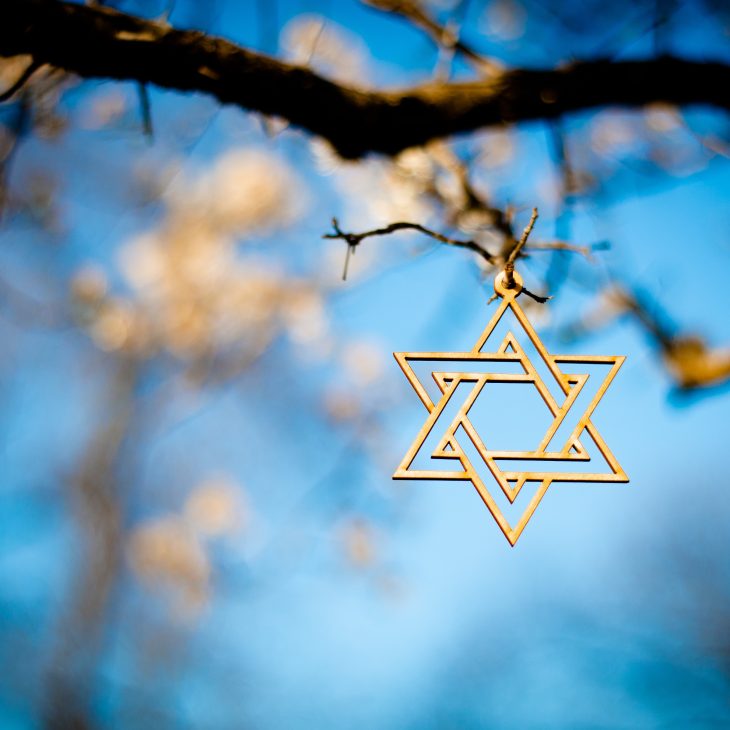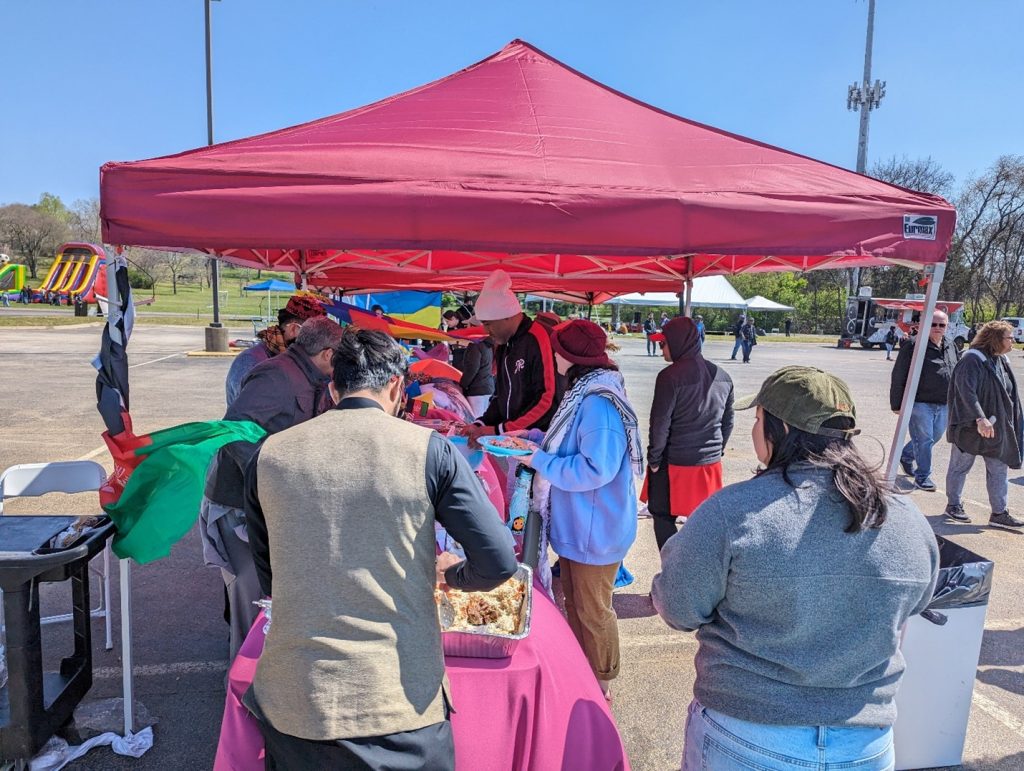Beha’alot’cha – The Inner Voice 2021
June 2, 2021

Rabbi Sandra Lawson received ordination from the Reconstructionist Rabbinical College in June 2018. She holds a Master’s degree in Sociology with a focus on environmental justice and race, is an Army veteran, and an Interfaith America Racial Equity Fellow.
Faith and The Inner Voice
This week the Jewish people are reading the Torah portion Beha’alot’cha, aka Numbers 8:1-12:16. In this week’s Torah portion, Moses is at a really low point. Moses has successfully led the Israelites from slavery, and after all they had been through, the people were still complaining. The people were complaining because they had no meat to eat, they were tired of eating manna and longed for the food they had in Mitzrayim, plus they seemed to lack gratitude for all they had, and then BOOM, a fire broke out on the outskirts of the camp. The people cry out to Moses and then Moses humbly cries out to God, and the fire stops. We hear so much despair in Moses’ voice. Moses sounds like he is on the verge of giving up.
There is so much complaining in this week’s Torah portion. The Torah even makes up a word for this level of complaining and refers to the complainers as hasafsoof. It’s the only time in the Torah where we find this word, and it means riffraff. The Torah says that the riffraff felt a gluttonous craving and started to complain about their lack of food choices.
After watching this play out, God tells Moses to pick seventy elders, and God says, “I will take some of the divine spirit that is on you and put it on them, and they shall bear the burden of the people along with you so that you will not bear it all by yourself.”
All of the elders hand-picked by Moses begin to behave and speak like prophets, meaning that they now have the ability to speak for God, something that before this Torah portion was reserved only for Moses. Soon after, two other men, not picked by Moses, also begin to behave and speak like prophets. Joshua, who will be Moses’ successor, urges Moses to stop them. And Moses says, “Are you upset on my account? Would that all of God’s people were prophets!”
In these verses, we can hear Joshua’s anxiety. Moses was the only one who had a direct line to God, and now suddenly, all of these people are speaking on God’s behalf, even people who weren’t invited. I love Moses’ response. It’s like he is saying, “Oh, dear one, are you jealous on my account? Do you think I mind having other people connecting with God? On the contrary. I wish everyone had a clear channel through which the Divine spirit and wisdom could flow.”
Today in Judaism, we all have access to Torah, and we all have access to God. So to quote Moses, “Would that all of God’s people were prophets.” My prayer is that we all feel safe enough to open our hearts and minds to the Divine. It would be awesome if we all trusted our intuition enough to discern when the voice urging us or calling us is a holy one.
Over the years, people have asked if I was ‘called’ to be a rabbi, and the truth is I don’t know, but what I do know is I did listen to an inner voice which I now believe was a holy voice. That holy voice led me to listen even when I doubted that a black, queer woman could be a rabbi. That inner voice led me to make certain choices in my life that led me to become the rabbi I am today.
This brings me to faith, and faith is when you know that you must do something in your heart, that you must go somewhere even if it does not seem logical, and you don’t know how things will turn out. Faith is what I often call the inner voice.
Faith is about courage: the courage to live with uncertainty and trust in your gut that you are on the right path. It’s the courage to do something new, to take a risk, to begin a journey knowing that there will be hazards and bumps along the way. Faith is all of those things, and also knowing that God is with you along the way, giving you the strength to carry on.
Share
Related Articles
American Civic Life
Higher Education
Charting an Inclusive Future, Illinois Students Look to the Past
American Civic Life



